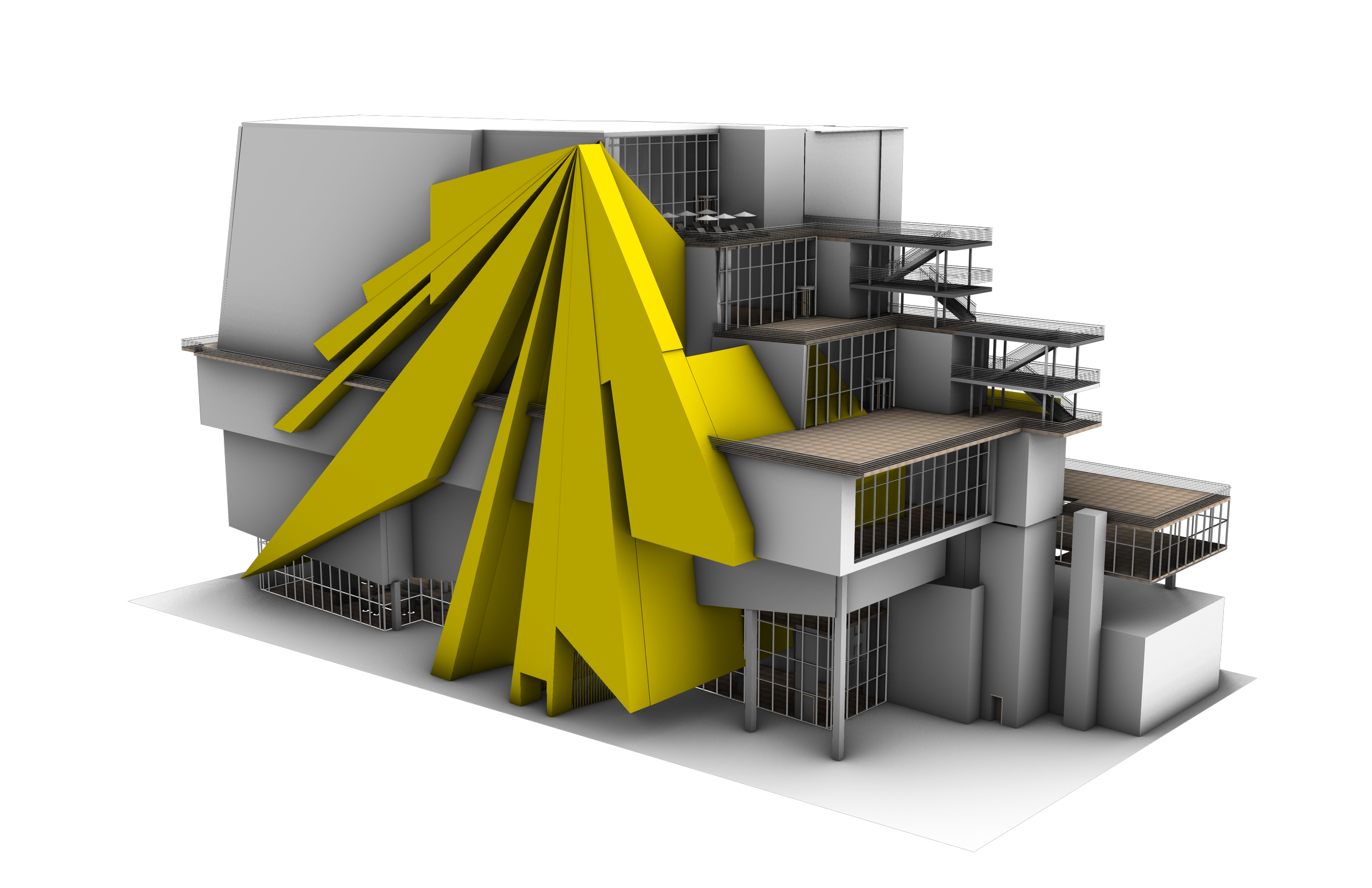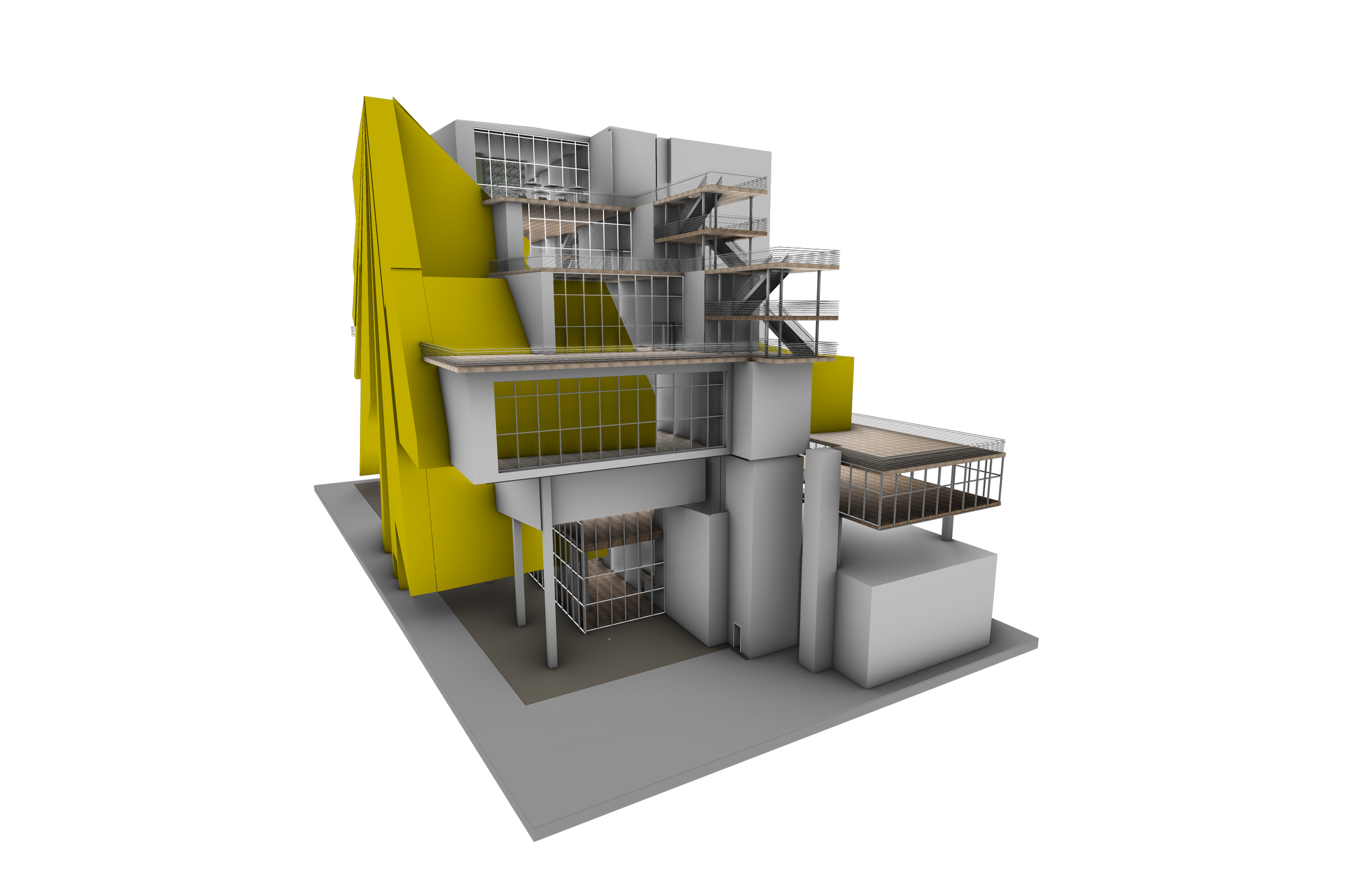29 Degree
29 Degree is a restaurant located in the Whitney Museum of American Art focused on reducing the impact of food waste. This specific project reconsider waste as a building material source.

The Whitney Museum of American Art designed by Renzo Piano connects people at every level of the building and my intervention keeps the same purpose. The experience starts outside and walks its way through each floor.
This project is centered on the development and usage of alternative materials to improve sustainability and quality of construction. The impact of climate change, pandemic, and loss of natural resources has resulted in a significant loss of natural and human life. Humanity won't be able to maintain existing living standards on Earth unless we change how we construct homes, use energy, and create, consume, and grow food. Food waste negatively affects the environment, the economy, food security, and nutrition.
Natural materials would spark a new approach in building by providing a variety of advantages over standard materials such as reduced CO2 content, lesser health concerns, and lower costs. Intercepting current low-value organic waste streams – both from the countryside and from our cities - would provide a chance to address issues such as organic waste streams, which are an expensive problem in both economic and environmental terms.
On this note I decided to enter the project with the material and I’m proposing a material made of dehydrated lemon waste that keeps the scent of the lemon.
The intensity of color will change depending on the sun exposure. When a lemon is being dehydrated the color changes from a bright yellow to a more brownish yellow.






